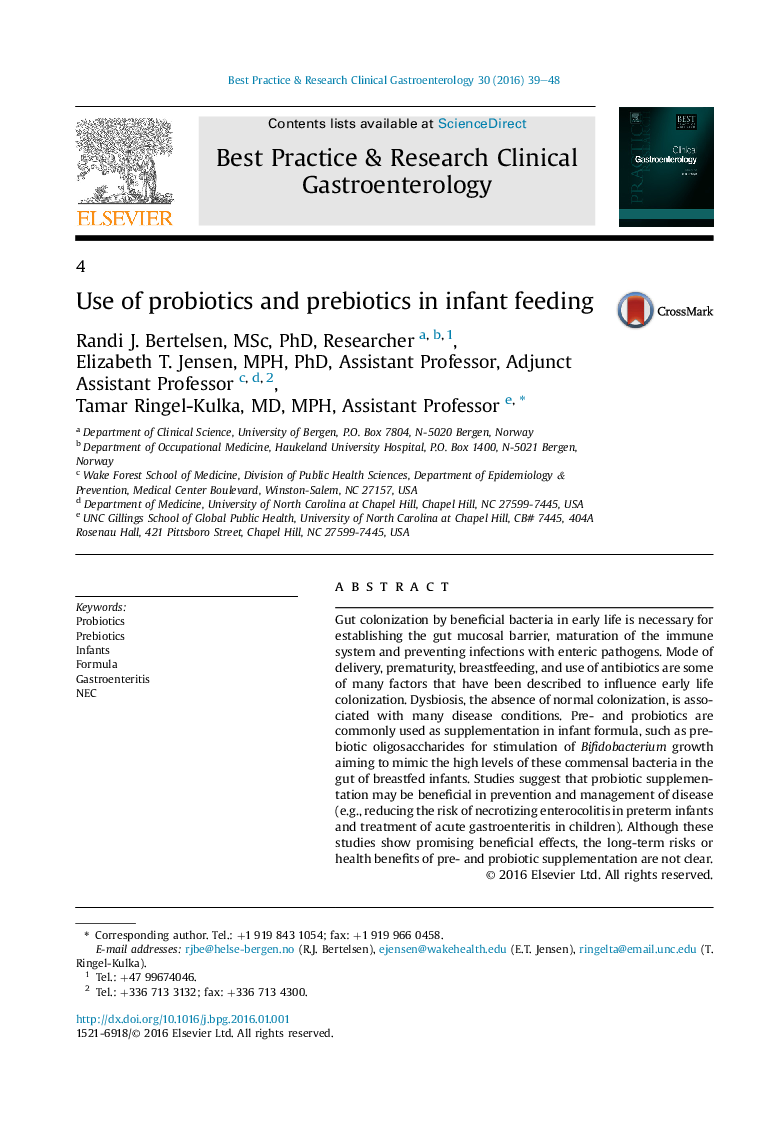| Article ID | Journal | Published Year | Pages | File Type |
|---|---|---|---|---|
| 3254000 | Best Practice & Research Clinical Gastroenterology | 2016 | 10 Pages |
Gut colonization by beneficial bacteria in early life is necessary for establishing the gut mucosal barrier, maturation of the immune system and preventing infections with enteric pathogens. Mode of delivery, prematurity, breastfeeding, and use of antibiotics are some of many factors that have been described to influence early life colonization. Dysbiosis, the absence of normal colonization, is associated with many disease conditions. Pre- and probiotics are commonly used as supplementation in infant formula, such as prebiotic oligosaccharides for stimulation of Bifidobacterium growth aiming to mimic the high levels of these commensal bacteria in the gut of breastfed infants. Studies suggest that probiotic supplementation may be beneficial in prevention and management of disease (e.g., reducing the risk of necrotizing enterocolitis in preterm infants and treatment of acute gastroenteritis in children). Although these studies show promising beneficial effects, the long-term risks or health benefits of pre- and probiotic supplementation are not clear.
